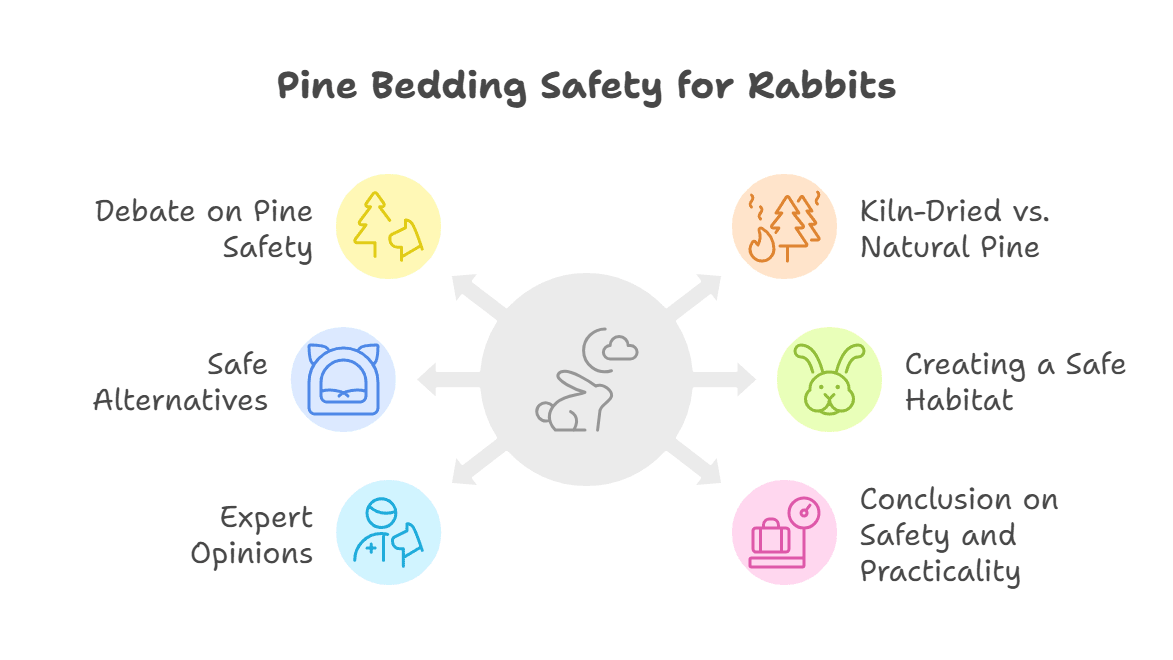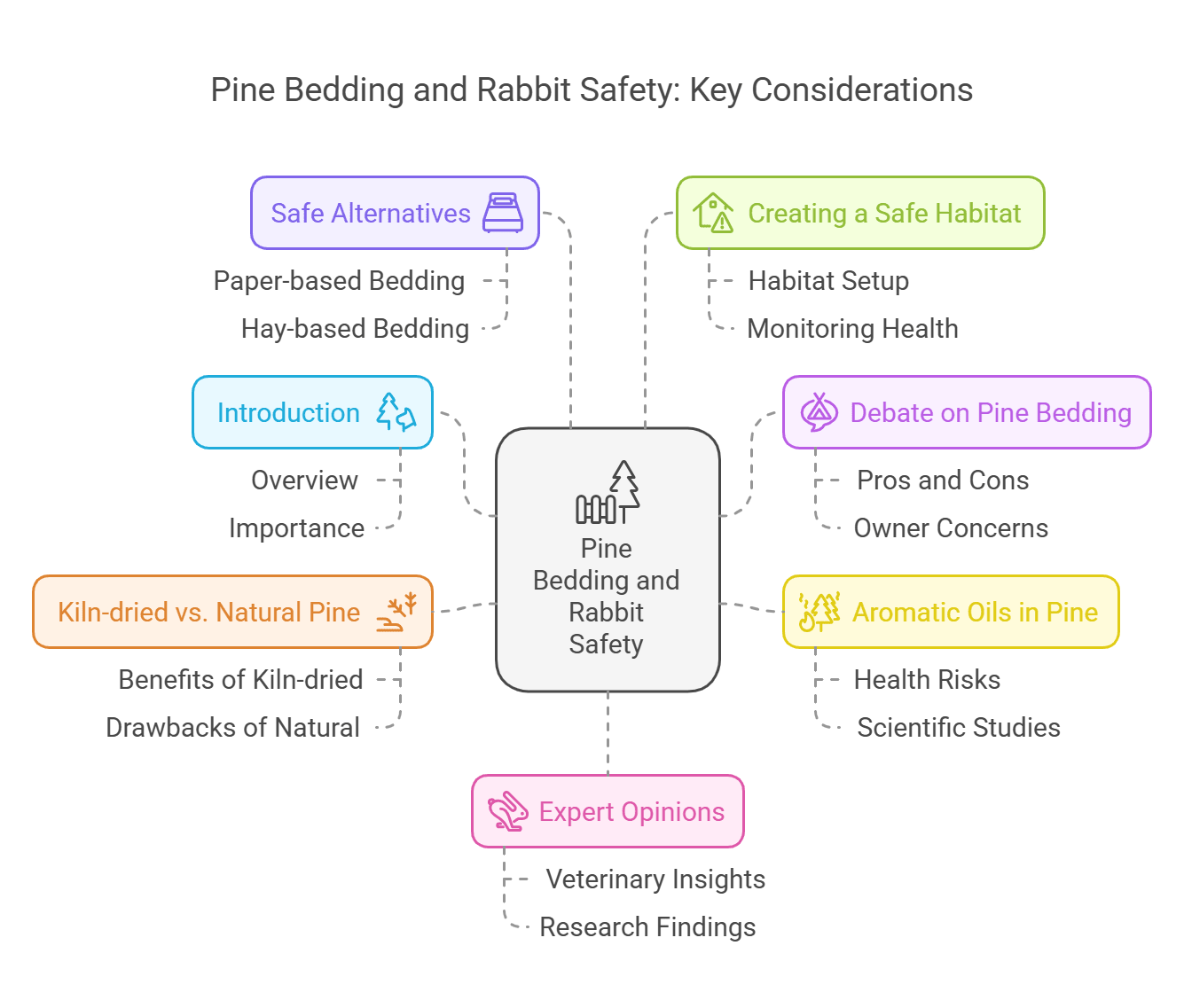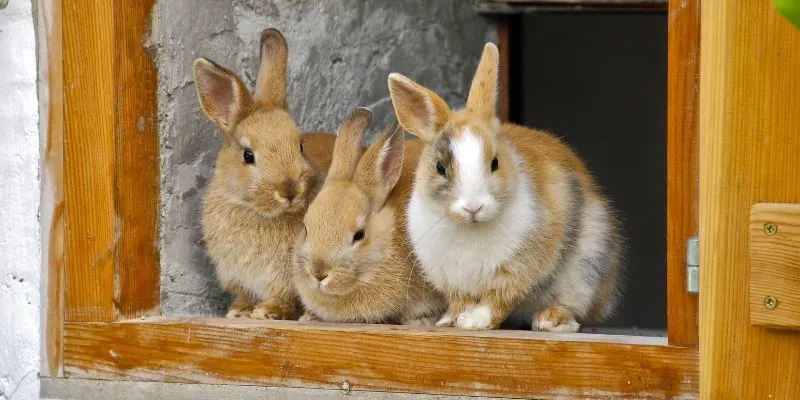Is Pine Safe for Rabbits? Vital Habitat Tips
Pine is not safe for rabbits. It can cause respiratory issues and may lead to liver damage.
Rabbits have sensitive digestive systems and require a specific diet for optimal health. Many pet owners might wonder about using pine wood for bedding or housing. While pine is commonly used, it contains harmful oils and phenols that can be toxic to rabbits.
Exposure to these substances can lead to serious health complications. Choosing safer alternatives, such as aspen or paper-based bedding, ensures your rabbit’s well-being. Understanding the risks associated with pine can help you create a safer environment for your furry friend. Always prioritize materials that promote health and comfort in your rabbit’s habitat.
Introduction To Pine And Rabbits
Pine is a common choice for pet habitats. Its fresh scent and natural look attract many pet owners. This wood is often used for bedding and litter. It can provide comfort and warmth for rabbits. Many people like its low cost and availability.
While pine is popular, it has some risks. Cedar oils in pine can irritate rabbits. This may lead to respiratory issues or skin problems. Choosing untreated pine is safer than treated options. Always ensure proper ventilation in the habitat. This helps reduce any harmful effects of the wood.
Rabbits need a safe and clean environment. Regular cleaning helps keep them healthy. Providing a mix of bedding materials is a great idea. This ensures comfort and protects their health.
The Debate Around Pine Bedding
The debate around pine bedding for rabbits continues among pet owners. Some experts warn about potential risks. Pine contains phenols, which can harm a rabbit’s respiratory system. These chemicals may cause skin irritation too. Using pine bedding might lead to serious health issues over time.
Despite the risks, many rabbit owners appreciate pine for its affordability and availability. It absorbs moisture well and helps control odors. Pine is also easy to find in most pet stores. Owners often enjoy its pleasant scent. Some choose to mix pine with other safe bedding options.

Understanding Aromatic Oils In Pine
Aromatic oils in pine can be harmful to rabbits. These oils contain terpenes and other chemicals. Some of these compounds may cause health issues.
Chemical composition varies among different pine species. Certain types may be more toxic than others. Pine needles can also pose risks to rabbits.
Exposure to pine oils can lead to respiratory problems. Symptoms may include coughing or difficulty breathing. Skin irritation can also occur with direct contact.
Always monitor your rabbit’s behavior. If any unusual symptoms appear, consult a veterinarian. Keeping rabbits away from pine materials is a wise choice.
Kiln-dried Vs. Natural Pine Bedding
Kiln-dried pine bedding is processed using heat. This method reduces moisture and eliminates harmful bacteria. It is safer for rabbits as it minimizes health risks.
Natural pine bedding, on the other hand, is not processed. It can contain oils and chemicals. These substances may cause respiratory issues for rabbits.
Choose kiln-dried bedding for better safety and usability. This option is cleaner and less likely to irritate your pet’s lungs. Always prioritize your rabbit’s health when selecting bedding.
Safe Alternatives To Pine Bedding
Choosing the right bedding is important for your rabbit’s health. Pine bedding can be harmful. Safe alternatives are available that offer comfort and safety.
Popular options include:
- Hemp bedding – Absorbs moisture well and is dust-free.
- Paper bedding – Soft, absorbent, and safe for rabbits.
- Timothy hay – Provides nutrition and bedding in one.
Comparing costs and benefits helps make the best choice.
| Bedding Type | Cost (per bag) | Benefits |
|---|---|---|
| Hemp | $20 | Eco-friendly and absorbent |
| Paper | $15 | Soft and safe |
| Timothy Hay | $10 | Nutritional and comfortable |
Creating A Safe Habitat For Your Rabbit
Creating a safe habitat for your rabbit is very important. Essential features include a spacious cage and clean bedding. Use untreated wood for chewing. Avoid toxic materials like pine. A good diet includes hay, fresh vegetables, and pellets.
Monitoring your rabbit’s health is key. Look for signs of illness such as lethargy or loss of appetite. Regular veterinary check-ups help keep your rabbit healthy. Provide fresh water daily. Keep the environment stress-free for your furry friend.
| Essential Features | Health Monitoring |
|---|---|
| Spacious cage | Watch for illness signs |
| Clean bedding | Regular vet check-ups |
| Untreated wood for chewing | Provide fresh water |
| Safe diet | Keep environment stress-free |

Expert Opinions On Pine And Rabbit Health
Veterinarians often express concerns about pine for rabbits. The aromatic oils in pine can be harmful. These oils may irritate a rabbit’s respiratory system. Long-term exposure can lead to serious health problems.
Studies show that pine shavings can cause skin irritation. Many vets recommend using safer bedding options. Alternatives like aspen shavings or paper-based products are better choices.
It’s crucial to monitor a rabbit’s health closely. Signs of distress include coughing, sneezing, or skin rashes. If any of these symptoms appear, consult a veterinarian.
| Type of Bedding | Safety for Rabbits |
|---|---|
| Pine Shavings | Not Safe |
| Aspen Shavings | Safe |
| Paper-based Products | Safe |
Conclusion: Balancing Safety And Practicality
Choosing the right wood for rabbits is important for their health. Pine can be a safe option if treated properly. Always ensure the wood is untreated and free from chemicals. Softwoods like pine may have aromatic oils that can irritate some rabbits. Monitor your rabbit’s reaction when introducing new materials.
Regularly observe your pet for any signs of discomfort. If a rabbit shows any adverse reactions, remove the pine immediately. Consult a veterinarian for guidance on safe wood choices. Keeping rabbits safe means making informed decisions. Stay updated on the best practices for rabbit care.
Adapt to your rabbit’s needs as they grow. What works today may not work tomorrow. Continual learning about rabbit care ensures a happy and healthy pet.

Frequently Asked Questions
Is Pine Wood Safe For Rabbits?
Pine wood is generally considered unsafe for rabbits. The oils and resins in pine can cause respiratory issues. Additionally, the aromatic compounds may irritate their sensitive systems. It’s best to avoid pine bedding or toys and opt for safer materials like aspen or paper-based products instead.
Can Rabbits Chew On Pine?
Rabbits should not chew on pine. The resins can be harmful if ingested. Chewing on pine might lead to gastrointestinal problems. Instead, provide safe alternatives like untreated apple or willow branches. Always prioritize your rabbit’s health by choosing appropriate chew materials.
What Bedding Is Safe For Rabbits?
Safe bedding options for rabbits include aspen shavings, paper-based products, and hay. Avoid cedar and pine due to harmful oils. These alternatives are absorbent and comfortable for rabbits. Always ensure the bedding is dust-free to protect their respiratory health.
Are Pine Pellets Safe For Rabbit Litter?
Pine pellets can be risky for rabbit litter. They contain oils that might irritate your rabbit’s lungs. Choose paper-based or aspen pellets for safer options. Ensure your rabbit’s environment remains clean and odor-free with appropriate litter materials.
Conclusion
Pine can pose risks for rabbits due to its high resin content and potential toxicity. Always prioritize safe bedding and chew toys made from rabbit-friendly materials. Consult your veterinarian for personalized advice. Ensuring your rabbit’s health is essential, so stay informed about safe options for their environment and diet.







